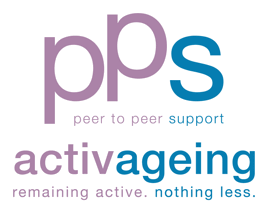Consortium
Rationale of and background to the project
Active ageing is defined by the World Health Organization (WHO) as “the process of optimizing opportunities for health, participation and security in order to enhance quality of life as people age. It allows people to realize their potential for wellbeing throughout their lives and to participate in society according to their needs, desires and capabilities, while providing them with adequate protection, security and care when they need assistance.” While this definition includes the notion of continuing activity in the labor force, it also encompasses continuing participation of older adults in society.
Active ageing depends on a variety of influences or “determinants” that surround individuals, families and nations. One of those is psychological factor, in particular perceived self-efficacy and copying skills. Copying skills determines how well people adapt to the transitions and crises of ageing. Self-efficacy is linked to personal behavior choices that foster active ageing, such as adoption of healthy lifestyles and participation on community life.
Peer education can be defined as a process whereby well-trained and motivated people (peer educators) undertake informal or organized educational activities with their peers aimed at developing knowledge and skills. Research suggests that people are more likely to hear and personalize messages, and thus to change their attitudes and behaviors, if they believe the messenger is similar to them and faces the same concerns and pressures. Studies suggest a number of benefits for peer educator too: receiving special training, learning important skills, including facilitation and communication, being recognized as leaders by their peers and their community.
This project wants to develop a methodology based on peer to peer training so to foster active ageing, either in small group’s settings or at a distance using the Internet. The training will be aimed at rising perceived self-efficacy and copying skills of participants (older adults 55+).
References
- Bandura, A. (1986). Social Foundations of Thought and Action: A Social Cognitive Theory. Englewood Cliffs, N.J.: Prentice-Hall.
- Bowles, S. and Gintis, H. (1976) Schooling in Capitalist America New York: Basic Books.
- Commission Staff Working Document on the European Year for Active Ageing (2011) http://europa.eu/ey2012/BlobServlet?docId=6780&langId=en
- EUROSTAT 01/2012 (ISSN 1830-7906) – “Active ageing and solidarity between generations”
- EUROPEAN COMMISION - Special Eurobarometer 378- “ACTIVE AGEING” Report 2012
http://ec.europa.eu/public_opinion/archives/ebs/ebs_378_en.pdf
- Vygotsky, L. S. (1978). Mind in society: The development of higher psychological processes. Cambridge, MA: Harvard University Press.
- World Health Organisation (2002) Active Ageing - A Policy Framework http://whqlibdoc.who.int/hq/2002/who_nmh_nph_02.8.pdf
Innovative character
The project promotes life-long learning and uses the life-long learning principle on a specific subject - active ageing.
Project is innovative because it develops a methodology based on peer to peer group facilitation carried out by older adults to support active ageing. Three training Programmes will be developed so to help older adults to apply lifelong learning principles into a dialogue-based workshop format. The workshop addresses also the need for advice and counselling for the older citizens on health and social matters.
From what we know, this is the only European project of its kind.

